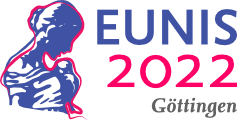Digital transformation is having far-reaching implications for societies, organisations and individuals. As the digital transformation has seen ICT reach into every part of university learning, concerns have grown around ensuring that digitalisation is inclusive. Inclusivity in education “enables people to be educated in a diversity of spaces at all times, removing barriers and bias regarding their learning potential.” Implicit in calls for the promotion of inclusivity in education is the recognition that students are not a homogeneous group. A number of factors can have an impact on the ability of a student to access learning in the university setting, and their engagement with university ICT. Academic Software has been providing solutions in the educational sector for more than a decade, and its experience points to a shift in which questions of inclusivity in digital education in the European context are increasingly less about access to computers, and more about ensuring the equity objective is followed through in deployment and licensing. This paper is intended to contribute to increasing awareness of the importance of licensing and deployment / provisioning in any interventions aimed at improving digital inclusivity.
Downloads: presentation (PPTX) – paper in EJHEIT


